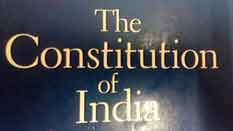A Comprehensive Guide to Company Formation
Formation of a Company
The formation of a company involves the process of legally creating a new business entity that is separate from its owners or shareholders. This process involves several steps, which can vary depending on the jurisdiction and the type of company being formed. Here's a general overview of the steps typically involved in the formation of a company:
The formation of a company involves the process of legally creating a new business entity that is separate from its owners or shareholders. This process involves several steps, which can vary depending on the jurisdiction and the type of company being formed. Here's a general overview of the steps typically involved in the formation of a company:
- Choose a Business Structure: Decide on the type of company structure that best suits your needs. Common types include private limited companies, public limited companies, one person companies (OPCs), and more. The choice depends on factors such as ownership, liability, and fundraising requirements.
- Select a Name: Choose a unique and suitable name for your company. Make sure the name adheres to legal guidelines and is available for registration. Some jurisdictions offer online tools to check name availability.
- Draft a Memorandum of Association (MOA): The MOA is a legal document that outlines the company's objectives, scope of activities, and rules. It's a fundamental document that defines the company's relationship with the outside world.
- Draft Articles of Association (AOA): The AOA sets out the internal rules and regulations for managing the company's affairs. It covers matters such as the powers of directors, shareholders' rights, meetings, and more.
- Appoint Directors and Promoters: Identify the initial directors and promoters who will be responsible for the company's formation process. Directors are individuals responsible for managing the company, and promoters are individuals who promote and initiate the company's formation.
- Obtain Director Identification Number (DIN): Obtain a DIN for each director from the relevant regulatory authority. This unique identification number is required for directors to legally hold office.
- Acquire Digital Signature Certificates (DSC): DSCs are electronic signatures used to digitally sign documents during the company formation process. They ensure the authenticity of documents submitted online.
- File Documents with Regulatory Authority: Prepare and file the required documents with the relevant regulatory authority in your jurisdiction. This typically includes the MOA, AOA, and other incorporation documents. Many jurisdictions offer online filing systems.
- Pay Fees and Stamp Duty: Pay the necessary fees and stamp duty associated with the incorporation process. The amount varies based on factors such as the company's authorized capital.
- Certificate of Incorporation: Once the documents are verified and approved, the regulatory authority issues a Certificate of Incorporation. This document confirms that the company is officially formed and legally recognized.
- Issue Share Certificates: If the company has shareholders, issue share certificates to them as evidence of ownership in the company.
- Comply with Post-Incorporation Formalities: After incorporation, companies are required to fulfill various post-incorporation formalities, such as holding annual general meetings, filing annual financial statements, and adhering to legal and regulatory requirements.
Law Article in India
Legal Question & Answers
Lawyers in India - Search By City
LawArticles
How To File For Mutual Divorce In Delhi

How To File For Mutual Divorce In Delhi Mutual Consent Divorce is the Simplest Way to Obtain a D...
Increased Age For Girls Marriage

It is hoped that the Prohibition of Child Marriage (Amendment) Bill, 2021, which intends to inc...
Facade of Social Media

One may very easily get absorbed in the lives of others as one scrolls through a Facebook news ...
Section 482 CrPc - Quashing Of FIR: Guid...

The Inherent power under Section 482 in The Code Of Criminal Procedure, 1973 (37th Chapter of t...
The Uniform Civil Code (UCC) in India: A...

The Uniform Civil Code (UCC) is a concept that proposes the unification of personal laws across...
Role Of Artificial Intelligence In Legal...

Artificial intelligence (AI) is revolutionizing various sectors of the economy, and the legal i...








Please Drop Your Comments